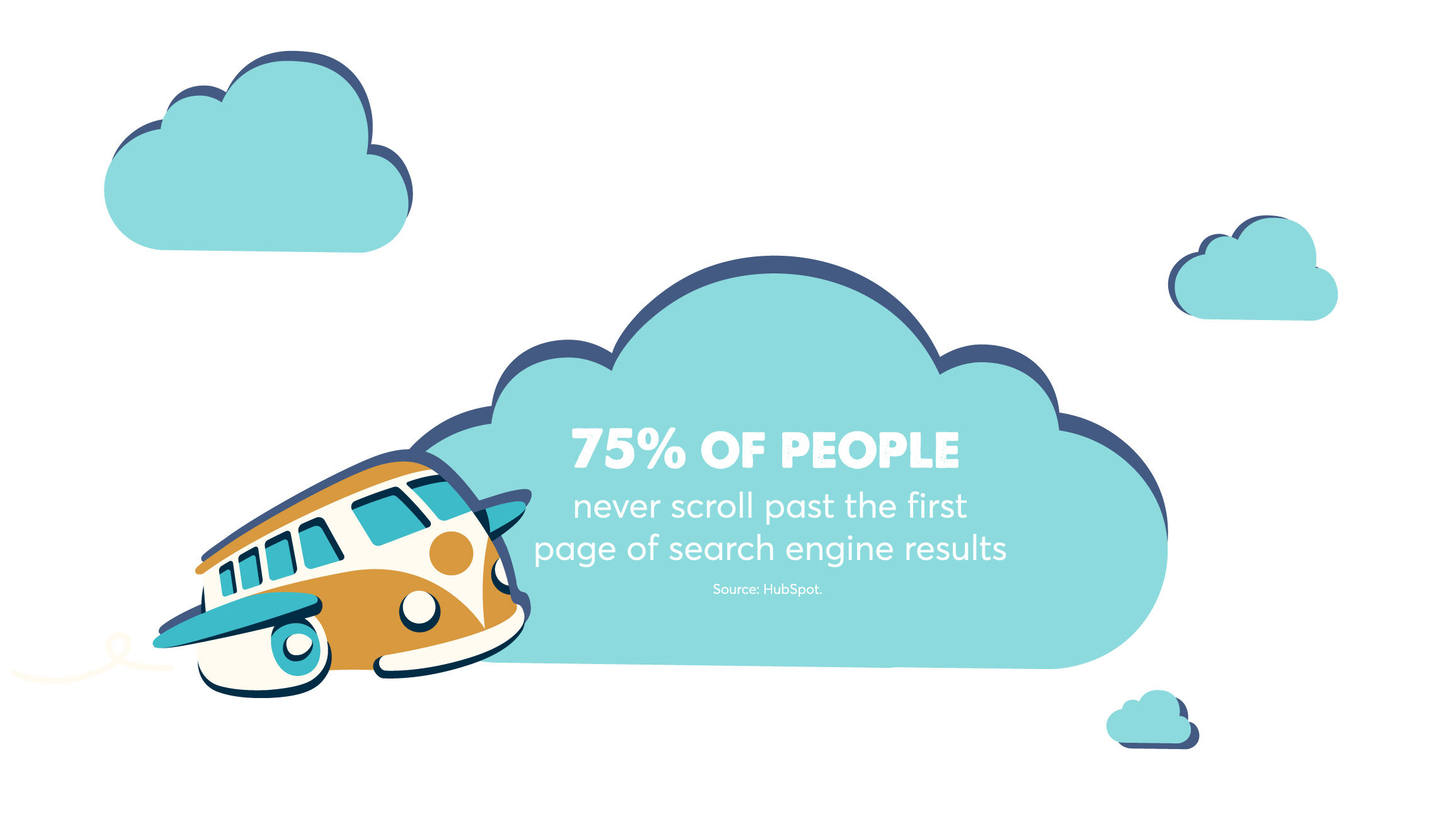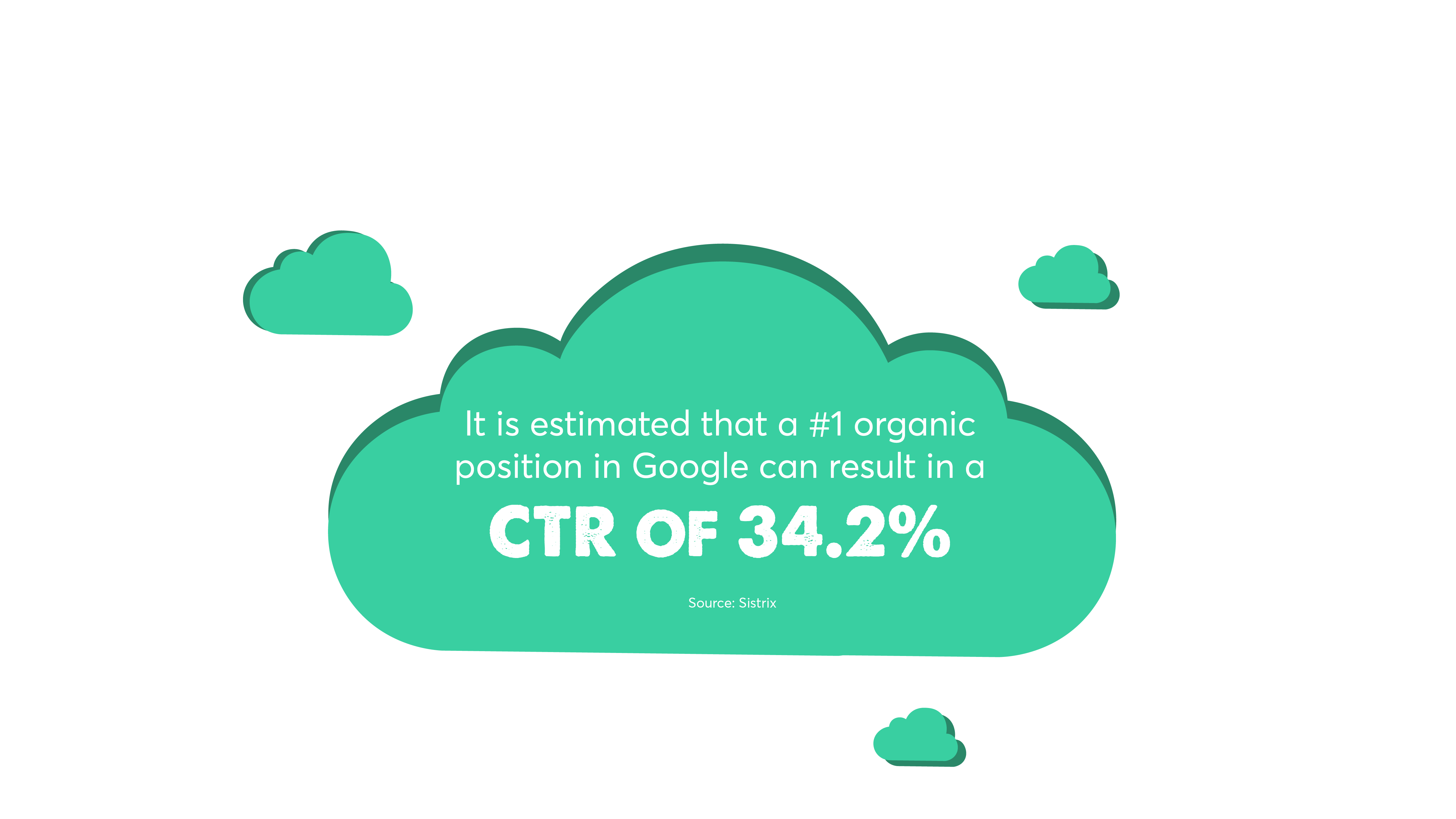Search Engine Optimisation: 9 strategies to improve brand awareness, drive traffic & boost sales!
SEO, short for search engine optimisation, is the secret sauce that can skyrocket your company's visibility in organic search results. By optimising your website for relevant keywords, you can attract a plethora of visitors to your website, increasing the likelihood of conversions and ultimately, boosting your sales. Don't let your competitors hog the limelight in search results, let SEO take your business to the next level! 
Source: https://ahrefs.com/blog/seo-statistics/
If you want to attract more customers to your website, optimising it for relevant keywords and appearing at the top of search results is crucial. This will increase your website's visibility, resulting in more potential customers seeing your products or services. Additionally, by improving your website's user experience through SEO, you can create a more user-friendly and easy-to-navigate site, resulting in higher sales conversion rates.
Targeting specific keywords and optimising your website for user intent can result in higher-quality leads, as visitors to your site are more likely to be interested in your offerings. In fact, businesses that blog have 434% more indexed pages, which can lead to more leads and higher search engine rankings.
Here are 9 strategies to improve your website's SEO and attract more potential clients:
1. Ensure your website is indexed with Google: One of the first steps in SEO is to ensure that your website is indexed with Google. This means that Google has found your website and has added it to its search index. You can do this by setting up Google Search Console and adding a site map. You should also use the "inspect URL" feature to test your main pages and ensure that they are being indexed properly.
2. Create multiple landing pages: Each page on a website is categorised and given priority by the main keyword, which is how search engines index websites. To make your website SEO-friendly, it is crucial to develop multiple landing pages.

https://ahrefs.com/blog/seo-statistics/
3. Strategically use keywords: The cornerstone of SEO are keywords. Use SEMRush and Answer the Public, among other tools, to locate important keywords. Include these keywords in the page titles, meta descriptions, and blog posts on your landing pages.
4. Make use of SEO tools: You can enhance the SEO of your website by using one of many SEO tools available. These are a few of the most well-known ones: Woorank, Sitechecker, GTmetrix, SEMrush, Moz, Ahrefs, Google PageSpeed Insights, Screaming Frog, WebPageTest, and Pingdom. With the aid of these tools, you can evaluate the functionality of your website, spot SEO problems, keep tabs on your rankings, and optimise it for quicker loading times.
5. Remove negative keywords: Negative keywords are ones that are unrelated to your company's industry. Making a list of keywords that are unquestionably unrelated to your business while you conduct keyword research will help you make sure that these words are not used on your website.
6. Utilise Wikipedia: If possible, try to include information about your company in Wikipedia. This is not easy to do, so try to ensure that there is a relevant link opportunity. For example, if your company is a spinout from a university, you might be able to add a link from their page and create a company page from this. Also, if you have published a paper, this is also a good place to add a link. 
https://ahrefs.com/blog/seo-statistics/
7. Paid Ads: Depending on how competitive your keywords are, you might want to take paid ads into consideration. Paid advertisements can be a useful tool for increasing website traffic and generating leads.
8. Google Business Profile: You may increase the exposure of your brand on SERPs by using your Google Business Profile. Optimise your map listing, add items and services, reviews, and posts to your Google Business Profile.
9. Backlinks: Backlinks are important for SEO as they improve your search engine rankings by indicating your site's value and relevance to others. Quality backlinks from credible sources, such as through guest blogging or collaborating with other websites in your niche, can be beneficial. However, avoid link schemes and buying links. Instead, focus on producing high-quality content that earns links naturally from reliable sources. For more information on how to create high-quality content, check out our blog.: How to create killer content that converts prospects to loyal customers (+ step by step guide)
SEO is critical for B2B startups, with 75% of people never scrolling past the first page of search engine results, according to HubSpot. By implementing effective SEO techniques, you can generate more traffic and higher-quality leads. SEO leads have a 14.6% conversion rate, compared to 1.7% for outbound leads, as reported by the Search Engine Journal. It's essential to continually monitor your website's performance and adjust your strategy as needed while staying up to date with the latest best practices. With the right knowledge and approach, you can optimise your website for search engines and take your business to the next level.
Need help with marketing your start-up?
Download The ultimate guide for B2B companies to rapidly scale their customer base to learn how to systematically engage with a significant volume of high value leads, nurture them through automated marketing and generate a sustainable pipeline of potential customers for your business.









